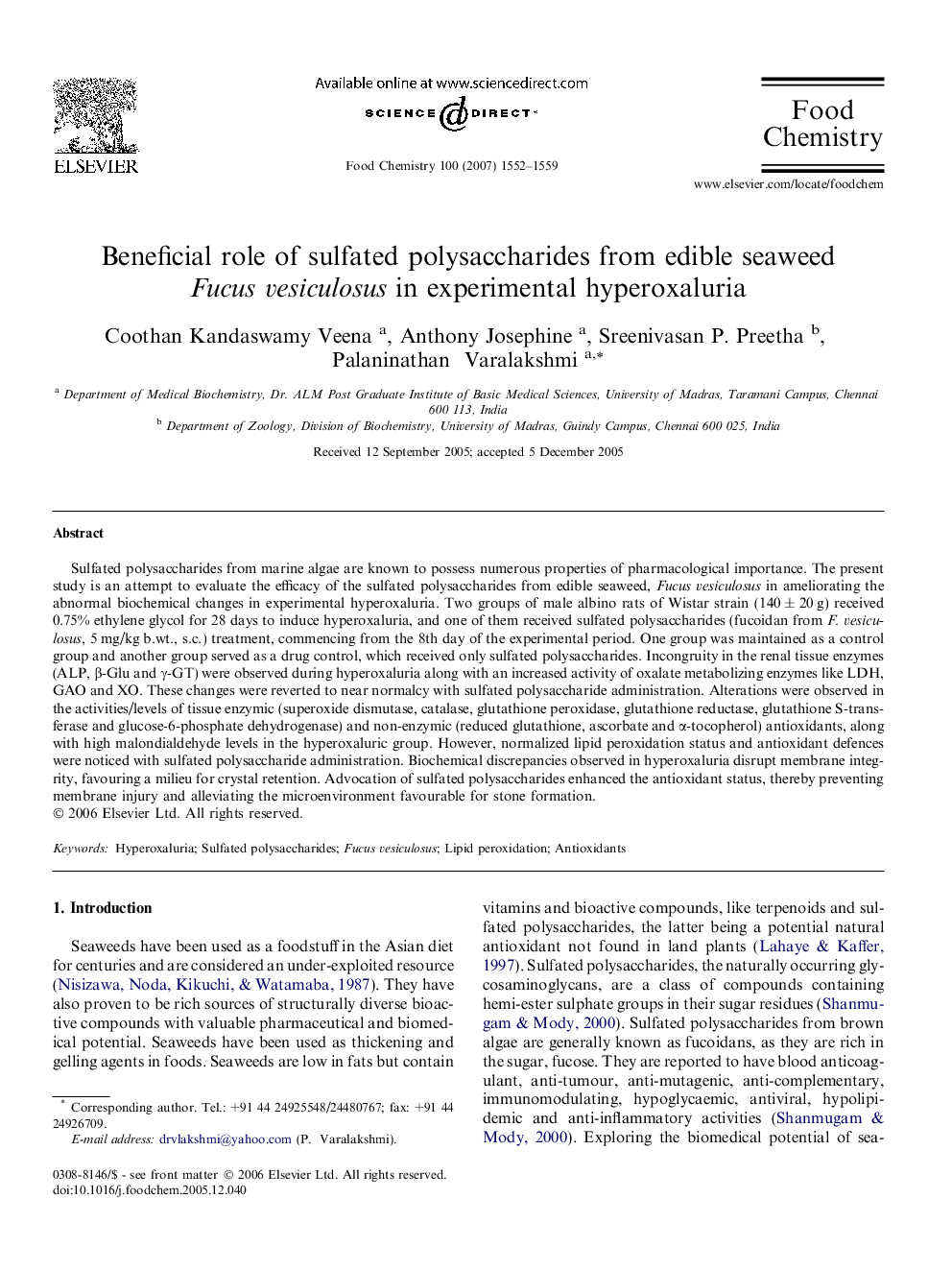| Article ID | Journal | Published Year | Pages | File Type |
|---|---|---|---|---|
| 1190489 | Food Chemistry | 2007 | 8 Pages |
Sulfated polysaccharides from marine algae are known to possess numerous properties of pharmacological importance. The present study is an attempt to evaluate the efficacy of the sulfated polysaccharides from edible seaweed, Fucus vesiculosus in ameliorating the abnormal biochemical changes in experimental hyperoxaluria. Two groups of male albino rats of Wistar strain (140 ± 20 g) received 0.75% ethylene glycol for 28 days to induce hyperoxaluria, and one of them received sulfated polysaccharides (fucoidan from F. vesiculosus, 5 mg/kg b.wt., s.c.) treatment, commencing from the 8th day of the experimental period. One group was maintained as a control group and another group served as a drug control, which received only sulfated polysaccharides. Incongruity in the renal tissue enzymes (ALP, β-Glu and γ-GT) were observed during hyperoxaluria along with an increased activity of oxalate metabolizing enzymes like LDH, GAO and XO. These changes were reverted to near normalcy with sulfated polysaccharide administration. Alterations were observed in the activities/levels of tissue enzymic (superoxide dismutase, catalase, glutathione peroxidase, glutathione reductase, glutathione S-transferase and glucose-6-phosphate dehydrogenase) and non-enzymic (reduced glutathione, ascorbate and α-tocopherol) antioxidants, along with high malondialdehyde levels in the hyperoxaluric group. However, normalized lipid peroxidation status and antioxidant defences were noticed with sulfated polysaccharide administration. Biochemical discrepancies observed in hyperoxaluria disrupt membrane integrity, favouring a milieu for crystal retention. Advocation of sulfated polysaccharides enhanced the antioxidant status, thereby preventing membrane injury and alleviating the microenvironment favourable for stone formation.
